show/hide words to know
Immune System Defenders
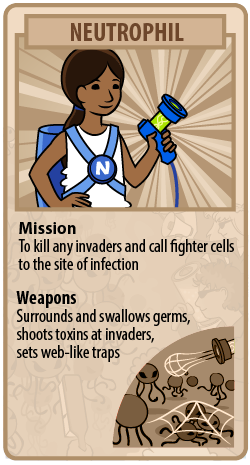
Neutrophils kill germs by swallowing them, shooting them with chemicals, or setting web-like traps for them.
They are the most common white blood cell in humans, so are often the first line of defense in the body. It’s a good thing they have so many ways to fight.
The web traps they make are basically sticky lines that are attached to the cell. These lines can stick to invading germs, stopping them in their tracks.
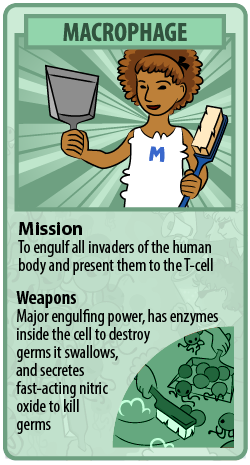
Macrophages ingest germs by forming a curve in the membrane. The curve soon surrounds the germ, and then seals the membrane around the germ.
Thus, it has the germ in what is called a vesicle (a pocket in the membrane). Inside the macrophage, chemicals get inside this pocket and chop up the germs.
Once the germs are chopped up, the macrophage displays the digested pieces of the germ on its surface. In this way, the macrophage can show the dendritic cells and T-cells (helper and killer) what it has found.
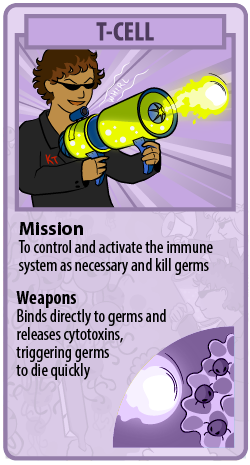
T-cells respond to signals from the macrophages that warn of infection. These signals are very specific, and report which type of germ is causing the infection.
For example a virus infection will cause a different signal than a bacterial infection. The signal tells the T-cell what the body is infected with and how many invaders there are.
There are millions of macrophages in the human body. If a large amount of them go to the lymph node with germs, chances are you have a pretty big infection. This is when the T-cell must call on other cells for help.
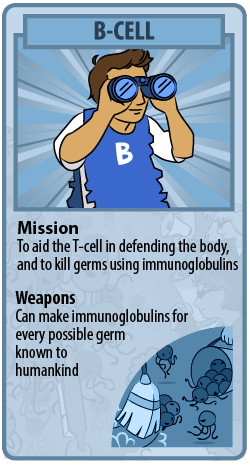
Once the T-cell signals that a large immune response is necessary, it messages the B-cells to display what germs they will be fighting.
The B-cells then prepare an immunoglobulin that exactly fits the germ they will encounter. Once the B-cells and T-cells migrate to the cut, the B-cells shoot these immunoglobulins out of the cells like bullets.
The immunoglobulins bind to the germs, destroying them.
When Your Defenders Can't Cut It
A paper cut seems like a pretty small wound for a healthy body to handle. But what happens if you don’t have any or if you have very few B- or T-cells in your body? This can happen from diseases such as cancer, HIV/AIDS, anemia, hepatitis, genetic defects, and medications such as steroids and chemotherapy.
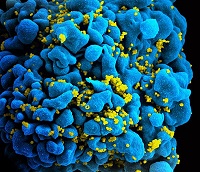
Diseases like HIV infect T-cells, making them unable to help protect the body.
People with these diseases or taking these treatments can’t fight germs very well, because they don’t have the B- or T-cells they need. They still have the macrophages that find the infections, but when the macrophages need help and look for the B- and T-cells, the defenders aren’t there. This means the germs can take over. Doctors call this being immunocompromised.
Luckily, there have been many advances in medicine to help immunocompromised people. Depending on the source of the problem, people can get bone marrow transplants, or take special medicines to help keep them from getting sick.
B-cell (B lymphocyte) image by BruceBlaus via Wikimedia Commons, infected HIV cell by NIAID via Wikimedia Commons.
View Citation
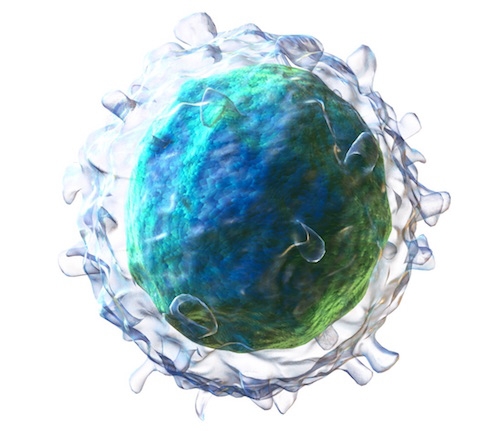
B-cells, like the one drawn here, can be almost non-existent in people with certain diseases.
If you like this story, check out our Viral Attack comic book.
Be Part of
Ask A Biologist
By volunteering, or simply sending us feedback on the site. Scientists, teachers, writers, illustrators, and translators are all important to the program. If you are interested in helping with the website we have a Volunteers page to get the process started.







